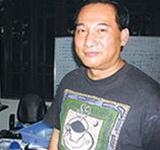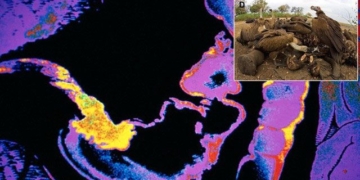Dr. Nguyen Chan Khe and his colleagues from the Ho Chi Minh City High-Tech Park Research and Development Center have just launched a scientific “baby” that promises to bring super profits to the country: Vietnam’s first carbon nanotube, developed entirely with domestic materials and technology.
 |
| Dr. Nguyen Chan Khe |
In a loose t-shirt, khaki pants, and athletic shoes, and without wearing glasses, Dr. Nguyen Chan Khe, Director of the Ho Chi Minh City High-Tech Park Research and Development Center, doesn’t resemble the image of a scientist who has made world-class inventions and innovations in the field of science and technology that I had imagined. Younger than his age, full of enthusiasm and passion, he is one of the overseas Vietnamese returning home to dedicate himself to the country.
The Creator of the Century’s Core Material “Made in Vietnam”
“I have achieved recognition in the field of science and technology abroad; it’s time for me to return home to help make my country prosperous.” With this thought, in 2002, Dr. Nguyen Chan Khe decided to settle in Vietnam, leaving behind enticing offers from research centers and leading tech companies in Japan and the U.S.
Liquid nano carbon is one of the most significant inventions by this overseas Vietnamese scientist after returning home and taking on the role of Director of the Ho Chi Minh City High-Tech Park Research and Development Center. The product is applied in the production of black and color ink “made in Vietnam” for inkjet and laser printers at a much lower cost compared to imported inks.
He showed me images printed with the ink made from liquid nano carbon, with extremely sharp details and realistic colors, indistinguishable from those printed with imported inks. Liquid nano carbon is also used to create masking materials in the production of microprocessors and fuel cells, also known as gasoline replacement batteries. This type of fuel cell, which does not produce carbon oxide, can replace gasoline for engines, does not pollute the environment, and generates clean energy when used.
 |
|
Electron microscope image of carbon nanotube created by Dr. Nguyen Chan Khe and colleagues at the Nano Technology Research Room, Ho Chi Minh City High-Tech Park R&D Center |
Dr. Nguyen Chan Khe’s greatest pride is the “baby” named Vietnam’s first carbon nanotube, developed entirely with domestic materials and technology, successfully created at the Ho Chi Minh City High-Tech Park Research and Development Center on June 1st. With its lightweight, strength, super durability, and superconductivity, this material is also used to make spacecraft hulls and is very beneficial for medicine, electronic materials, and more.
Globally, carbon nanotubes are considered the core material of the century and are sold at a high price, around $1,000 per gram. After completing intellectual property registration and launching it on the market in the near future, Dr. Nguyen Chan Khe’s carbon nanotube material is expected to bring super profits, even though it is much cheaper than international prices.
Dr. Nguyen Chan Khe’s groundbreaking projects have been recognized by many international scientific organizations. The leading international scientific association for nanotechnology in the U.S., the Nano Science and Technology Institute (NSTI), awarded him significant recognition in the Vol 1 publication of Nanotech 2006 in Boston, USA, from May 7 to 11, 2006, for his achievements in applying liquid nano carbon to proton-conducting membranes for fuel cells. This is a point of pride for Vietnam’s still modest high-tech industry, which faces many challenges.
Concern for the High-Tech Vision of the Country
Dr. Nguyen Chan Khe has decided to permanently associate himself with the country for a simple yet profound reason: “I love my homeland.” As an overseas Vietnamese who has lived many years abroad, he understands better than anyone the desire to return to the motherland, to the roots, even though he knows that working conditions and research capabilities there cannot compare to Silicon Valley (USA) or Dai Nippon Ink (Japan), where he once contributed.
|
Dr. Nguyen Chan Khe, born in 1952 in Da Nang. In 1971, he studied in Japan, attending Tokyo University of Technology, and earned a Ph.D. in materials and information processing science. He has worked at Dai Nippon Ink (Japan), Eastman Kodak, Hewlett-Packard (USA), etc. He has won numerous invention awards, and his dozens of inventions have been recognized in Japan and the U.S. Many of his inventions have been adopted by leading technology companies worldwide, such as Sanyo, Ricoh, Intel, Motorola, Kodak, for the production of portable photocopiers, printers, computers, and more. In 2002, he returned to Vietnam and took on the role of Director of the Ho Chi Minh City High-Tech Park Research and Development Center. |
Indeed, upon returning to Vietnam, Nguyen Chan Khe faced numerous difficulties and obstacles. “Two laboratories approved by the state budget since September 2004 have yet to be completed,” he said, illustrating the cumbersome administrative management system that still requires many reforms. Additionally, the expertise of young specialists in the country shows significant gaps; their skills are not solid, lacking experience and a proactive, professional work style.
Moreover, the lack of infrastructure and the necessary chemicals and materials for high-tech material research are evident. He often has to use his own money to invest in his world-class research projects. However, he has overcome all challenges with a cheerful attitude because “contributing my efforts to the country is already a joy.”
Dr. Nguyen Chan Khe is particularly concerned that few overseas Vietnamese, especially younger ones, are returning to Vietnam to contribute to the country. “I hope that my fellow overseas Vietnamese will return to participate in the construction of the country at this time. If they are older, they may no longer have the strength to contribute to their homeland and then will forever regret it, but they shouldn’t return too soon without experience and practical knowledge gained abroad,” Dr. Khe expressed.
For the younger generation in the country, Dr. Khe hopes for Vietnam to have a good education system so that they can study and be genuinely interested in science, while also encouraging them to seek out new information from advanced scientific fields worldwide. “There is no reason why Vietnam cannot achieve significant breakthroughs on par with Japan and the U.S.” Dr. Nguyen Chan Khe is confident.

















































